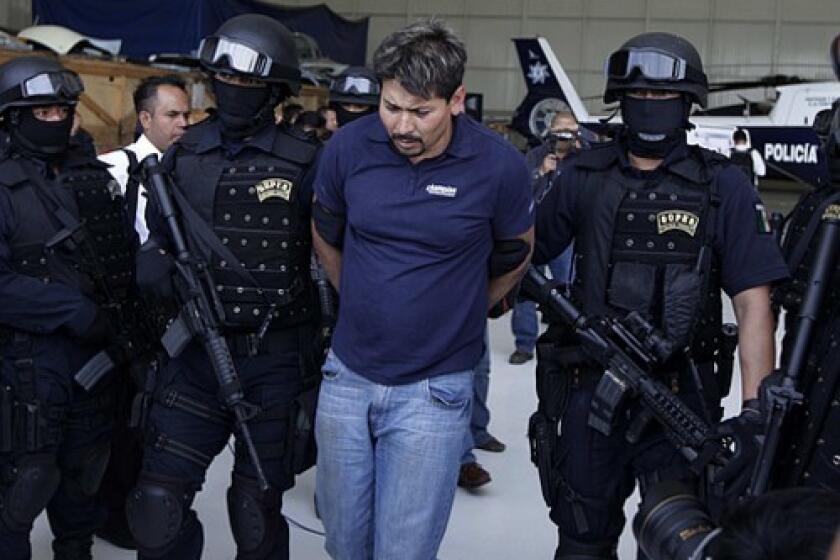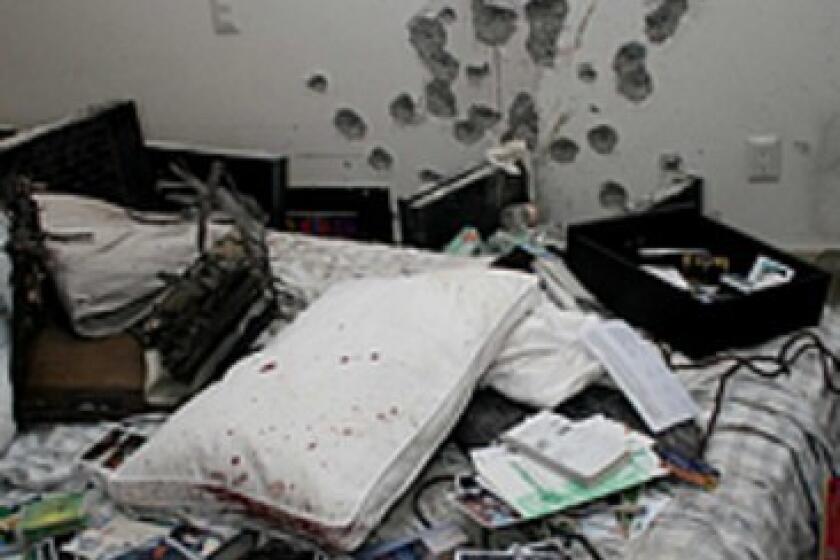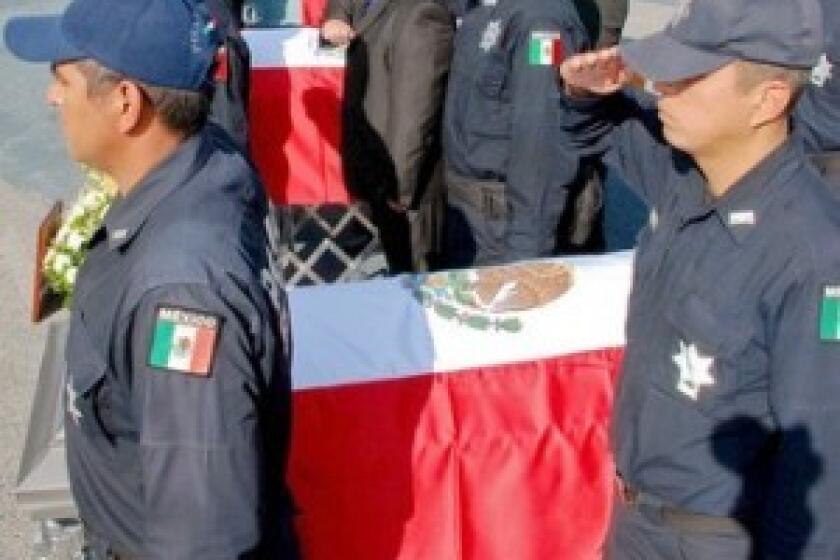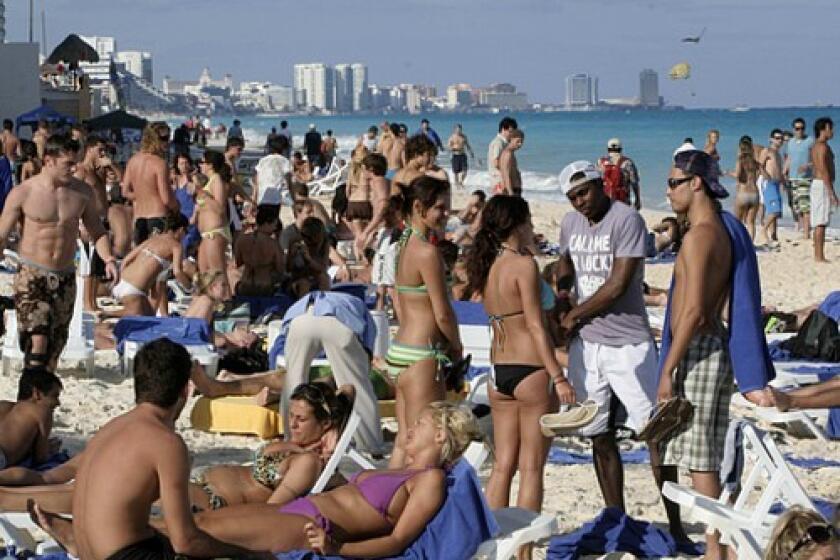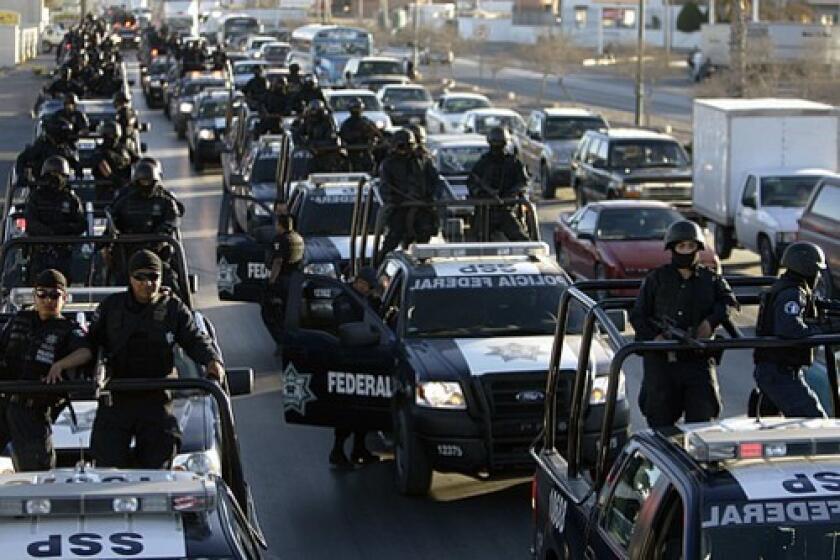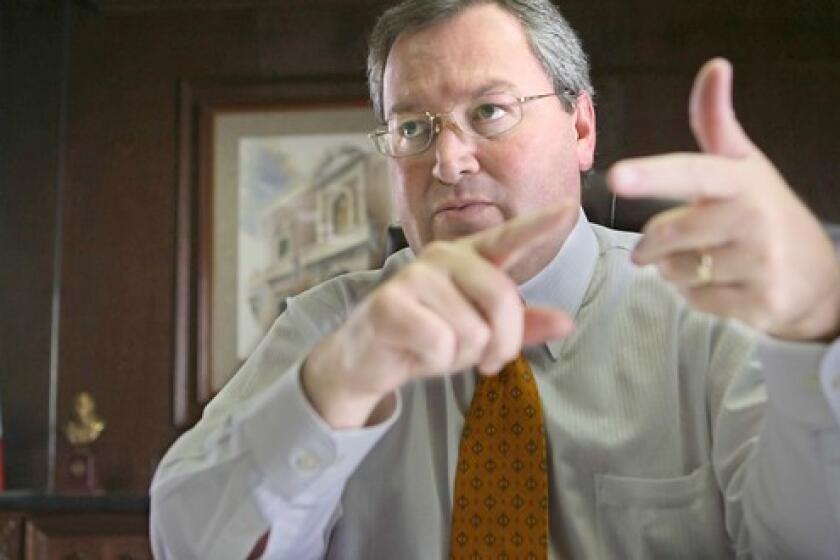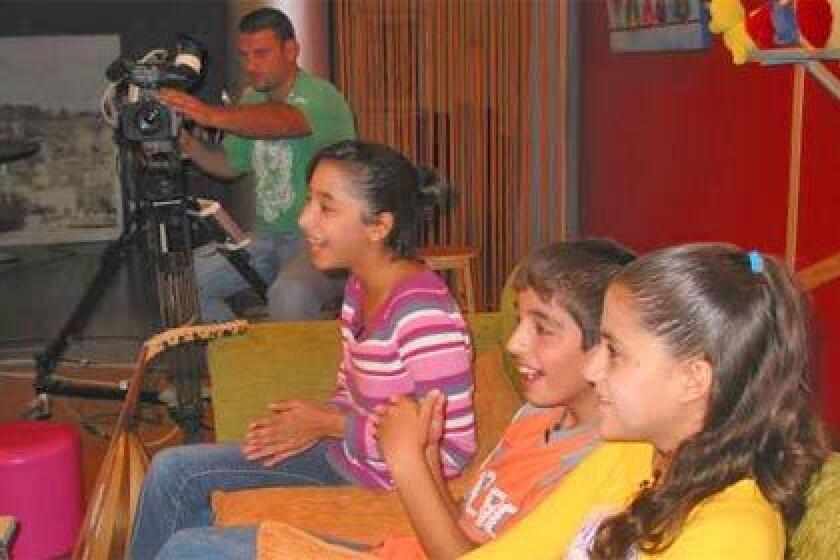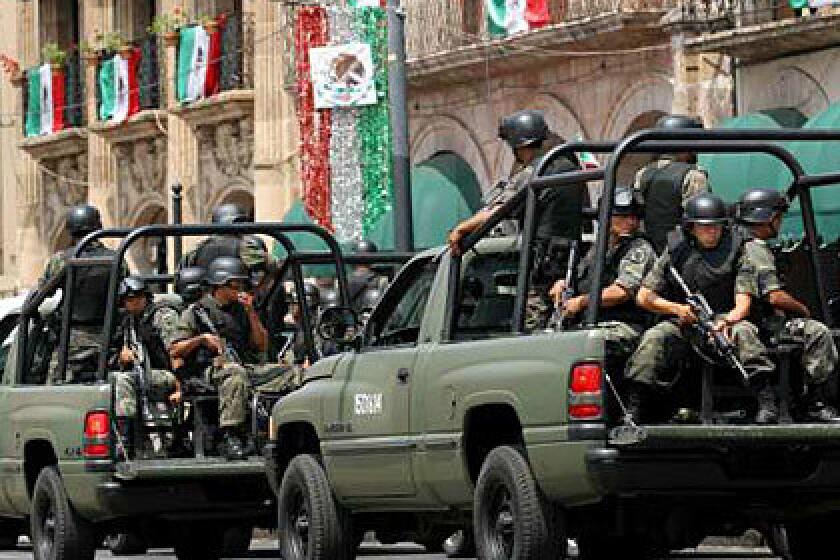Mexico City
Ken Ellingwood, Correspondent
Ken Ellingwood, a Times staff writer since 1992, is based in Mexico City, with responsibility for covering Mexico and Central America. He was previously based in Jerusalem and covered Israel, the West Bank and Gaza Strip. He has also reported from Iraq, Iran, Jordan, Egypt and Lebanon. Before joining the foreign staff in 2003, Ellingwood was the newspaper’s bureau chief in Atlanta, where he covered a six-state swath of the American South. From 1998 to 2002, Ellingwood covered the U.S.-Mexico border, based in San Diego, and is the author of “Hard Line: Life and Death on the U.S.-Mexico Border.” He earlier held a number of local beats, from the San Gabriel Valley to police and courts in Orange County, while on the Times staff in Southern California. EMAIL
- 1
Obituary: Yitzhak Shamir served four terms as prime minister in the 1980s and early ‘90s. His unyielding pro-settlement views and hard-line stance toward the Palestinians often exasperated U.S. policymakers.
- 2
The hours-long battle that killed two soldiers and 16 gunmen took place several miles from the main strip of tourist complexes.
- 3
De la Madrid, who led Mexico between 1982 and 1988, helped open up the country economically and politically. His tenure was besmirched by Mexico’s lingering financial troubles and a weak response to the catastrophic 1985 quake.
- 4
Top Mexican officials say the U.S. kept them in the dark. One official was stunned to learn that the cartel hit men who killed her brother had assault rifles from Fast and Furious in their arsenal.
- 5
Congressman-elect Julio Cesar Godoy is suspected of helping protect La Familia, accused of killing 16 officers recently. That has brought pressure on his half-brother, Michoacan Gov. Leonel Godoy.
- 6
President Felipe Calderon’s reform would eliminate Mexico’s 2,000 local police departments, seen as tainted by corruption from the drug war. The plan must still be approved by Congress and the states.
- 7
Tens of thousands descend on downtown with placards saying ‘No more blood!’ and ‘We’re fed up!’ More than 34,000 have died since President Felipe Calderon began cracking down on cartels.
- 8
In his state of the nation report, President Felipe Calderon notes the arrests or killings of drug kingpins and efforts to clean up police. He also touts job gains and other economic improvements.
- 9
After the slaying of a gubernatorial candidate, Mexico’s president urges citizens to fight ‘a common enemy that today threatens to destroy not only our tranquility but our democratic institutions.’
- 10
A trucking dispute and the drug war stir up hidden tensions just as Clinton prepares for her first visit south as secretary of State.
- 11
A shift from military to police control is part of a broadened strategy aimed at curbing violence that has killed more than 5,000 people in Ciudad Juarez since 2008. So far, the results are mixed.
- 12
Reversing police corruption that has tainted whole departments, shattered faith in law enforcement and compromised one of society’s most basic institutions is proving difficult, but not impossible.
- 13
Police say Jesus Ernesto Chavez told them that Lesley A. Enriquez, 35, was shot to death in Ciudad Juarez because his gang thought she was providing visas to rivals.
- 14
Images of Arturo Beltran Leyva’s corpse covered with blood-stained peso notes and jewelry raise concerns that law enforcement is adopting the tactics of hit men. An inquiry is underway.
- 15
News reports said the shooting broke out when troops went to search a suspected criminal hide-out in Taxco, a picturesque town that draws thousands of visitors. All the dead were said to be gunmen.
- 16
Average words aren’t sufficient for the over-the-top violence of Mexico’s drug war, so new ones have been invented.
- 17
The 2 1/2-year offensive has uncovered deep corruption and sparked violent gang wars, presenting a stark reality: The longer and harder the war is fought, the more complex and daunting it becomes.
- 18
The military had said the two children were killed at Easter after their van was caught in cross-fire between troops and drug gang gunmen. But the human rights official rejects the account.
- 19
Eleven men and one woman were found tortured and fatally shot Monday in Michoacan state. The drug cartel La Familia is blamed for the attack and several others in recent days.
- 20
The mutilated corpses of nine people were found in plastic bags in the bed of a pickup the southern Mexico state of Guerrero, authorities say. The area is known for its drug trafficking.
- 21
Closed-door, written trials give way to U.S.-style proceedings in Chihuahua. The overhaul could help fight corruption and organized crime, analysts say.
- 22
Mexico is to deploy 5,500 security personnel to the western state of Michoacan, where a series of recent attacks has killed 16 police officers. The La Familia drug gang is suspected in the slayings.
- 23
Mexico’s rampant drug violence has put the issue of safety front and center for would-be vacationers, and put the country’s publicity-sensitive tourism promoters on the defensive.
- 24
As violence has soared, more than 30 reporters have died or disappeared in Mexico since 2000, the group Reporters Without Borders says.
- 25
All of the dead in the Durango prison uprising are inmates. The fighting is said to have been between members of rival drug-trafficking cartels.
- 26
The rewards are for information leading to the capture of the 24 most-wanted, including Joaquin ‘Shorty’ Guzman and Ismael Zambada, leaders of the so-called Sinaloa cartel.
- 27
The government is deploying 1,000 more federal police officers as part of a wider effort to restore order in the nation’s most violent city. Thousands of soldiers are also being sent.
- 28
The charges against Gregorio Sanchez, on leave to run for governor, add new force to worries organized crime has infiltrated politics at all levels and is undermining moves toward a real democracy.
- 29
One ‘Bulletproof Lawyer’ survived four assassination attempts before being gunned down. Such unsolved killings highlight the violence within a judicial system manipulated by powerful drug cartels.
- 30
Since President Calderon’s deployment of troops in the war against drug trafficking, allegations of illegal searches and arrests, rape and torture have risen, rights groups say.
- 31
The killing of a newly-hired security official and two others raises questions about the drug trade’s impact on the popular resort, especially with suspicions falling on the ex-police chief.
- 32
The museum, which is used to educate soldiers and is closed to the public, offers powerful testimony to the inventiveness and huge resources that traffickers continue bringing to the fight.
- 33
Mayors say they are the ones personally confronting the toll of drug violence on the streets. Yet they lack any meaningful role in the federal government’s battle against organized crime.
- 34
The number is rising, and the rich are not the only ones targeted. Criminals sometimes want as little as $500.
- 35
They make up one-fifth of the population, but are rarely seen on TV. A programmer adds shows and alters popular ones in a push to change that.
- 36
No one is sure why the orange-and-black dainties return every year to the mountains of Michoacan. But it’s easy to see why the humans do.
- 37
Two recent U.S. reports paint a dire picture of Mexico as its battle against drug crime grows more bloody, but Mexican officials say that though some cities are in trouble, the state itself is strong.
- 38
A new law allows President Felipe Calderon to give his state of the nation report without having to appear before Congress, a move that avoids disturbances.
- 39
President Calderon proposes new anti-kidnapping squads, special prisons, cellphone tracking and aid for local forces.
- 40
Drug money and corruption have long tainted law enforcement. But Genaro Garcia Luna, with President Calderon’s backing and the aid of technology, may succeed in reforming the system, analysts say.
- 41
Though an attack on civilians in Morelia has tested the public’s stomach for the increasingly savage conflict, the president has little room to pull back from his crackdown.
